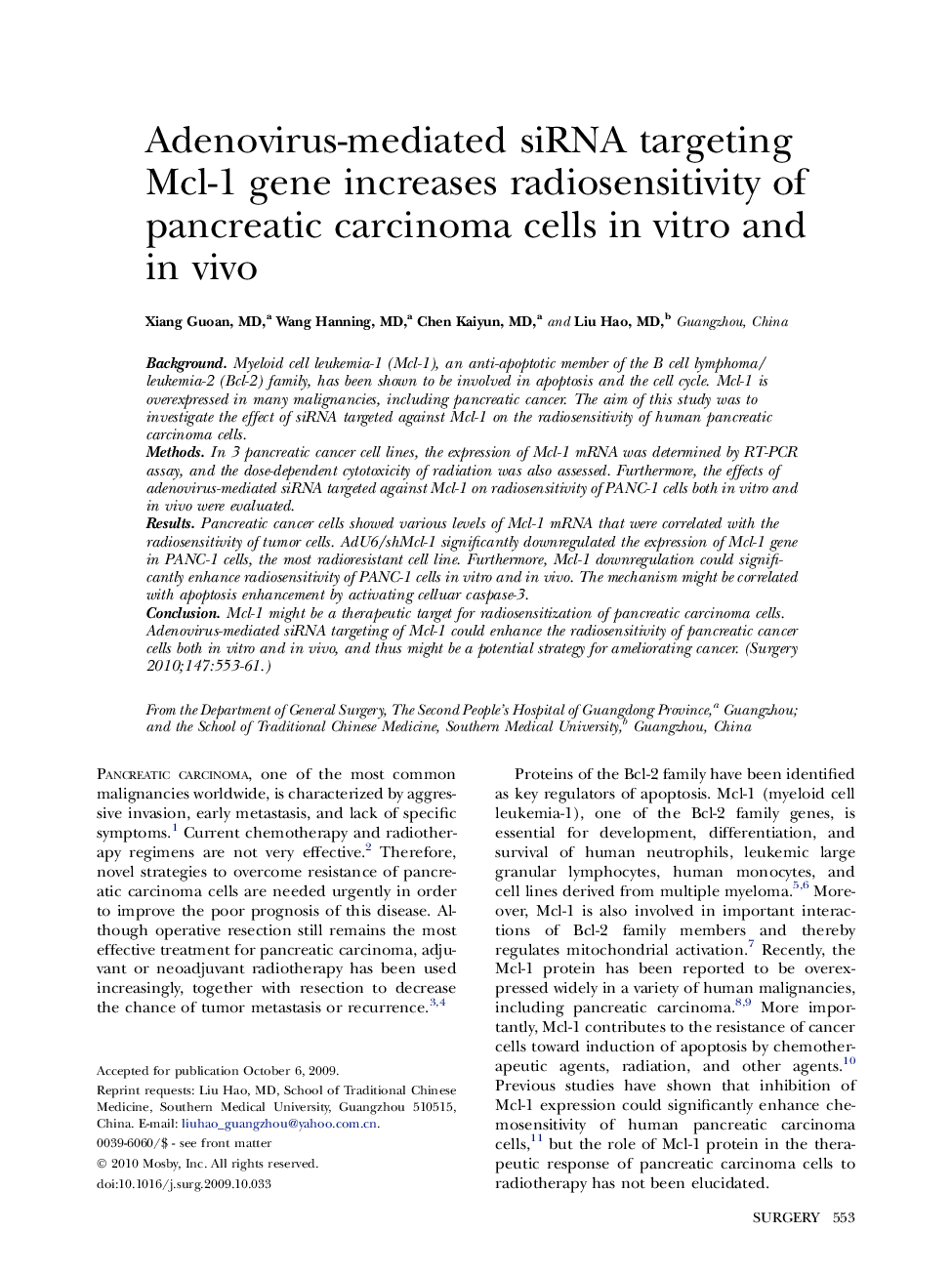| Article ID | Journal | Published Year | Pages | File Type |
|---|---|---|---|---|
| 4308864 | Surgery | 2010 | 9 Pages |
BackgroundMyeloid cell leukemia-1 (Mcl-1), an anti-apoptotic member of the B cell lymphoma/leukemia-2 (Bcl-2) family, has been shown to be involved in apoptosis and the cell cycle. Mcl-1 is overexpressed in many malignancies, including pancreatic cancer. The aim of this study was to investigate the effect of siRNA targeted against Mcl-1 on the radiosensitivity of human pancreatic carcinoma cells.MethodsIn 3 pancreatic cancer cell lines, the expression of Mcl-1 mRNA was determined by RT-PCR assay, and the dose-dependent cytotoxicity of radiation was also assessed. Furthermore, the effects of adenovirus-mediated siRNA targeted against Mcl-1 on radiosensitivity of PANC-1 cells both in vitro and in vivo were evaluated.ResultsPancreatic cancer cells showed various levels of Mcl-1 mRNA that were correlated with the radiosensitivity of tumor cells. AdU6/shMcl-1 significantly downregulated the expression of Mcl-1 gene in PANC-1 cells, the most radioresistant cell line. Furthermore, Mcl-1 downregulation could significantly enhance radiosensitivity of PANC-1 cells in vitro and in vivo. The mechanism might be correlated with apoptosis enhancement by activating celluar caspase-3.ConclusionMcl-1 might be a therapeutic target for radiosensitization of pancreatic carcinoma cells. Adenovirus-mediated siRNA targeting of Mcl-1 could enhance the radiosensitivity of pancreatic cancer cells both in vitro and in vivo, and thus might be a potential strategy for ameliorating cancer.
